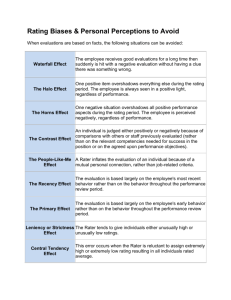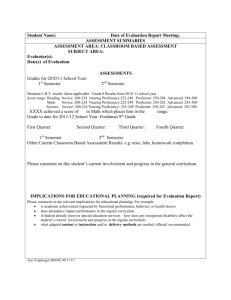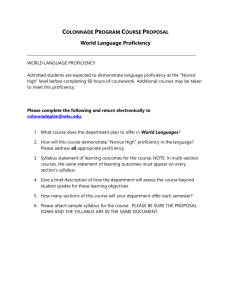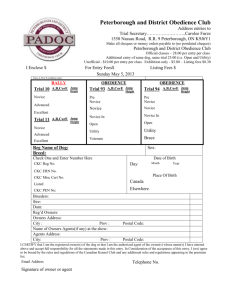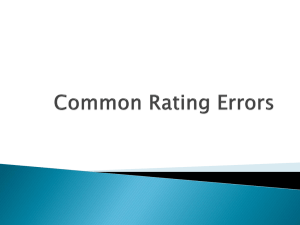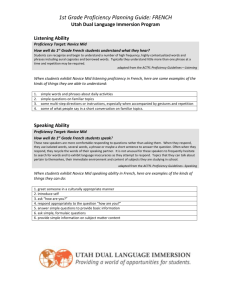Human Achievement Quotient (HAQ) Assessment
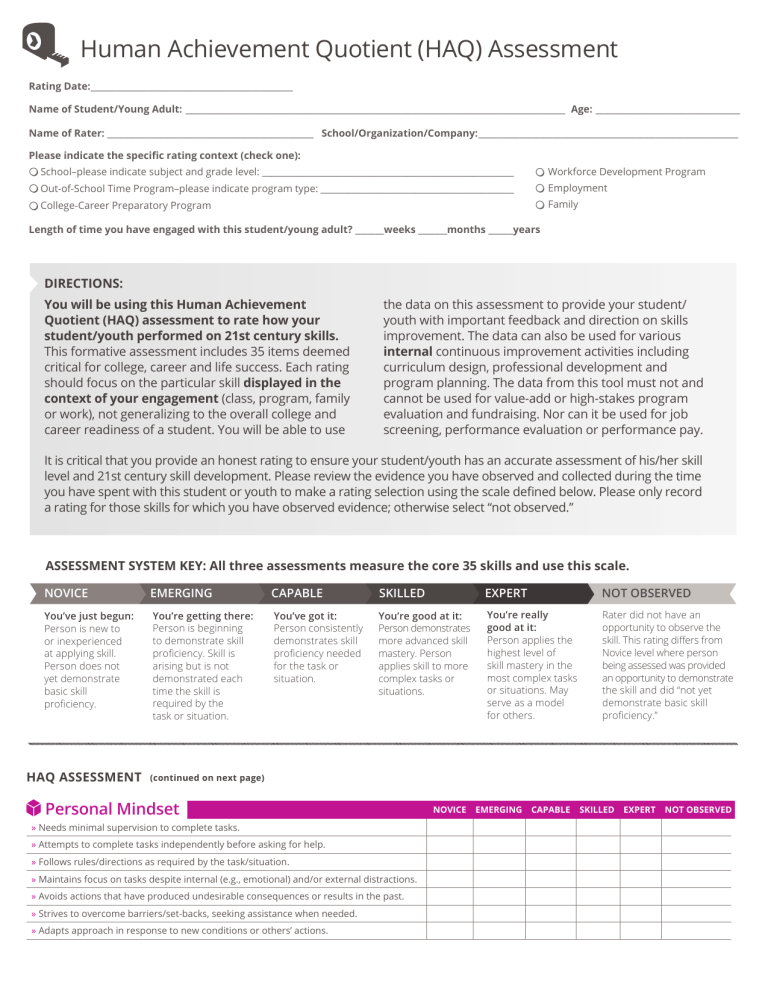
Human Achievement Quotient (HAQ) Assessment
Rating Date: _________________________________________________
Name of Student/Young Adult: ____________________________________________________________________________________________ Age: ___________________________________
Name of Rater: __________________________________________________ School/Organization/Company: _______________________________________________________________
Please indicate the specific rating context (check one):
School–please indicate subject and grade level: ________________________________________________________
Out-of-School Time Program–please indicate program type: ___________________________________________
College-Career Preparatory Program
Workforce Development Program
Employment
Family
Length of time you have engaged with this student/young adult? _______weeks _______months ______years
DIRECTIONS:
You will be using this Human Achievement
Quotient (HAQ) assessment to rate how your student/youth performed on 21st century skills.
This formative assessment includes 35 items deemed critical for college, career and life success. Each rating should focus on the particular skill displayed in the
context of your engagement (class, program, family or work), not generalizing to the overall college and career readiness of a student. You will be able to use the data on this assessment to provide your student/ youth with important feedback and direction on skills improvement. The data can also be used for various
internal continuous improvement activities including curriculum design, professional development and program planning. The data from this tool must not and cannot be used for value-add or high-stakes program evaluation and fundraising. Nor can it be used for job screening, performance evaluation or performance pay.
It is critical that you provide an honest rating to ensure your student/youth has an accurate assessment of his/her skill level and 21st century skill development. Please review the evidence you have observed and collected during the time you have spent with this student or youth to make a rating selection using the scale defined below. Please only record a rating for those skills for which you have observed evidence; otherwise select “not observed.”
ASSESSMENT SYSTEM KEY: All three assessments measure the core 35 skills and use this scale.
NOVICE EMERGING CAPABLE
You’ve just begun:
Person is new to or inexperienced at applying skill.
Person does not yet demonstrate basic skill proficiency.
You’re getting there:
Person is beginning to demonstrate skill proficiency. Skill is arising but is not demonstrated each time the skill is required by the task or situation.
SKILLED EXPERT
You’ve got it:
Person consistently demonstrates skill proficiency needed for the task or situation.
You’re good at it:
Person demonstrates more advanced skill mastery. Person applies skill to more complex tasks or situations.
You’re really good at it:
Person applies the highest level of skill mastery in the most complex tasks or situations. May serve as a model for others.
NOT OBSERVED
Rater did not have an opportunity to observe the skill. This rating differs from
Novice level where person being assessed was provided an opportunity to demonstrate the skill and did “not yet demonstrate basic skill proficiency.”
HAQ ASSESSMENT
(continued on next page)
Personal Mindset
» Needs minimal supervision to complete tasks.
» Attempts to complete tasks independently before asking for help.
» Follows rules/directions as required by the task/situation.
» Maintains focus on tasks despite internal (e.g., emotional) and/or external distractions.
» Avoids actions that have produced undesirable consequences or results in the past.
» Strives to overcome barriers/set-backs, seeking assistance when needed.
» Adapts approach in response to new conditions or others’ actions.
NOVICE EMERGING CAPABLE SKILLED EXPERT NOT OBSERVED
HAQ ASSESSMENT cont’d
Planning for Success
» Sets and prioritizes goals that reflect a self-awareness of one’s capabilities, interests, emotions, and/or needs.
» Breaks goals into actionable steps.
» Accurately estimates level of effort and establishes realistic timelines.
» Manages time to complete tasks on schedule.
» Applies existing/newly acquired knowledge, skills, and/or strategies that one determines to be useful for achieving goals.
» Monitors progress and own performance, adjusting approach as necessary.
» Demonstrates a belief that one’s own actions are associated with goal attainment.
For more information and ideas visit mhalabs.org
NOVICE EMERGING CAPABLE SKILLED EXPERT NOT OBSERVED
Social Awareness
» Recognizes the consequences of one’s actions.
» Balances own needs with the needs of others.
» Takes into consideration others’ situations/feelings.
» Develops and implements strategies for navigating in different contexts
(i.e., manages different patterns of behavior, rules, and norms).
Verbal Communication
» Organizes information that serves the purpose of the message, context, and audience.
» Uses and adjusts communication strategies as needed based on the purpose of the message, context, and audience.
» Signals listening according to the rules/norms of the context and audience.
» Seeks input to gauge others’ understanding of the message.
» Asks questions to deepen and/or clarify one’s understanding when listening to others.
NOVICE EMERGING CAPABLE SKILLED EXPERT NOT OBSERVED
NOVICE EMERGING CAPABLE SKILLED EXPERT NOT OBSERVED
Collaboration
» Completes tasks as they have been assigned or agreed upon by the group.
» Helps team members complete tasks, as needed.
» Encourages the ideas, opinions, and contributions of others, leveraging individual strengths.
» Provides feedback in a manner that is sensitive to others’ situation/feelings.
» Clarifies areas of disagreement/conflict that need to be addressed to achieve a common goal.
» Seeks to obtain resolution of disagreements/conflicts to achieve a common goal.
NOVICE EMERGING CAPABLE SKILLED EXPERT NOT OBSERVED
Problem Solving
» Defines problems by considering all potential parts and related causes.
» Gathers and organizes relevant information about a problem from multiple sources.
» Generates potential solutions to a problem, seeking and leveraging diverse perspectives.
» Identifies alternative ideas/processes that are more effective than the ones previously used/suggested.
» Evaluates the advantages and disadvantages associated with each potential solution identified for a problem.
» Selects and implements best solution based on evaluation of advantages and disadvantages of each potential solution.
NOVICE EMERGING CAPABLE SKILLED EXPERT NOT OBSERVED
Areas of
Strength:
Areas for
Development:
Additional
Comments:
Please check this box to verify that you have read the assessment directions, used the defined scale, and were honest in all of your ratings on this assessment.
